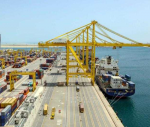You are here
The UK-US pact
Jul 29,2019 - Last updated at Jul 30,2019
Jeremy Corbyn, leader of UK Labour Party, is an honourable person, but not exactly socialist. The same description applies to US Senator Bernie Sanders of Vermont. Both are liberal pseudo-socialists, with a strong proclivity to fairness to the poor and workers.
Yet, both gentlemen are continuously accused of being socialists by their political adversaries in both the White House and at 10 Downing Street. US President Donald Trump and British Prime Minister Boris Johnson stand to benefit from accusing Sanders and Corbyn of being on the far-left of the people and closer to Russian and Chinese models.
Now that both Trump and Johnson are firm in the saddle, they both will ardently work towards a speedy Brexit in order to release the UK from its strong ties to Europe, and, hopefully, compensate the British people by charting a more formidable alliance with the United States. Although both countries are doing well economically, that may not last for a long time to come.
The 1980s witnessed a similar alliance between the two countries, which began by the Falklands campaign against Argentina. Is Argentina now being replaced by Iran? It is obvious that Iran is a much tougher nut to crack, but the reciprocal abduction of ships started by the UK is an obvious opportunity creation for the UK to have a role in the Iran-centred crisis. It did work.
The expectations around the US to dilute its presence in the Middle East gives the UK an opportunity to strike a deal to allow the UK to play a greater role and fill the vacuum that may be left by the US.
In economic terms, Reaganomics and Thatcherism adopted a free trade economic model which prompted privatisation, free exchange rates policies, open trade borders and de-governmentalisation. Now, Trump and Johnson want protectionism, mercantilism and reincarnation of navigation laws.
Yet, Iran is not targeted for its hegemony, nor for its alleged shanghaiing of Indian sailors from a UK flag-hoisting ship. They want Iran to stop selling oil to China, which imports 9-10 million barrels of oil every day. Iran is a major supplier. It is part of an all-comprehensive campaign to bring China to the table in order to negotiate intellectual property, technology, trade and currency.
How would that impact the Arab world is a multifaceted question which requires another article.













